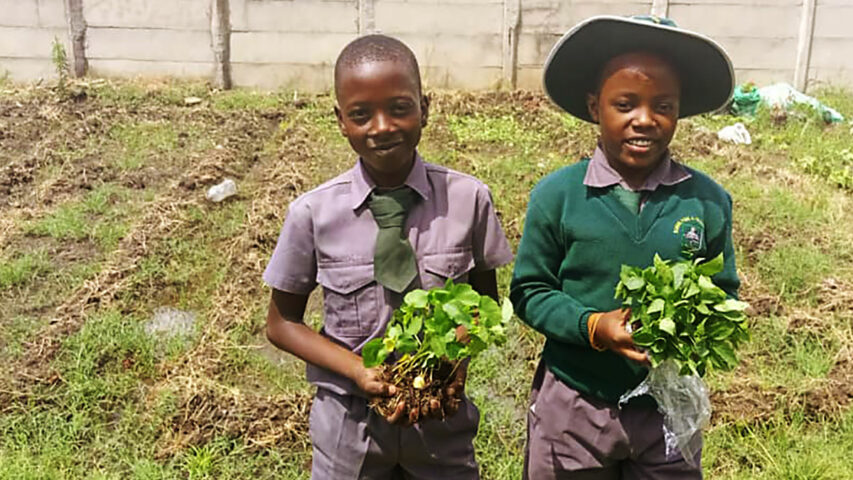- Have any questions? Contact us!
- info@dr-rath-foundation.org

The Power of Probiotics
March 8, 2024
UK Health Secretary Urged to Release Data That ‘May Link Covid Vaccine to Excess Deaths’
March 15, 2024Zimbabwe Needs a Hand Up, Not Hand Outs

Image: Dr. Rath Health Foundation / Movement of Life
By Bruce Kanengoni and Jean Worth
The majority of Zimbabweans born in recent decades have known nothing but hunger and poverty. Only a small minority of the population were able to escape this and attain a safer, more secure life. Many have had to leave the country in order to survive and thrive. But for most it’s a struggle to even put food on the table, with people often getting by on just one meal a day. In this situation, obtaining all the essential micronutrients that are needed to stay healthy is next to impossible.
Towards improving this situation, our Movement of Life project in Zimbabwe got off to a positive start by donating gardening tools to desperately poor people living in a large sprawling suburb of Harare, the country’s capital. Students at participating schools were especially keen to set up vegetable gardens and dreamed of taking food home to share with their families. Some even hoped to benefit from an excess harvest and being able to make some money by selling their surplus produce.
The first big challenge we faced was the poor rainy season, which meant that the vegetable gardens struggled to survive. The students were therefore told to bring a liter bottle of water to school each day to water their gardens. While this definitely helped, the quantity of vegetables produced was still not enough for students to take anything significant home with them.
Then one of the schools agreed to pay for half the cost of sinking a water borehole, with the Dr. Rath Health Foundation funding the remainder. This borehole now supports the vegetable garden at that school, plus another school gardening project nearby. Now both schools can expand their vegetable gardens and the children’s dreams of having enough food to eat are becoming a reality.
As promising as this is, however, on a national scale it is a drop in the ocean. Schools and communities in other suburbs are approaching us wanting to get involved in the project, but they too are desperately short of water. Given the predictions of a severe drought leading to famine occurring in Zimbabwe later this year, a widely implemented sustainable intervention is urgently needed.
More boreholes are clearly necessary, along with piping to carry water to the vegetable gardens. This will better enable schools, students, and communities to grow sufficient food to feed themselves. In contrast to the impression often given by the large charities and international aid agencies, Zimbabweans generally don’t want handouts; they simply want a hand up to enable them to become entrepreneurs and lead independent lives.
We cannot express strongly enough how dire the situation is becoming across most of Zimbabwe. Analysts such as the Famine Early Warning Systems (FEWS) Network warn that the country’s food security situation is in crisis. A historically dry February has resulted in severe water stress for crops across most regions. The 2024 harvest is therefore expected to be poor, with higher food prices looking inevitable. Significantly, therefore, while there are currently over a thousand non-governmental organizations (NGOs) registered in Zimbabwe, none of them would appear to have the brief to provide funds for digging boreholes. This further points towards the uniqueness of our Movement of Life project and its Free Water for All campaign.
In spite of the challenging circumstances, everyone involved in the Movement of Life Zimbabwe program remains cheerful and optimistic. The new borehole has really lifted everyone’s spirits. While the children benefitting from it were born into poverty and have grown up facing constant struggles, they are now filled with joy and keen to help anyone they can.
At the beginning of this year, one group harvested enough to be able to sell some of their produce. With the money raised they purchased school uniforms for a boy and girl who had no money to buy them themselves. Children like these deserve to be given a hand up.



